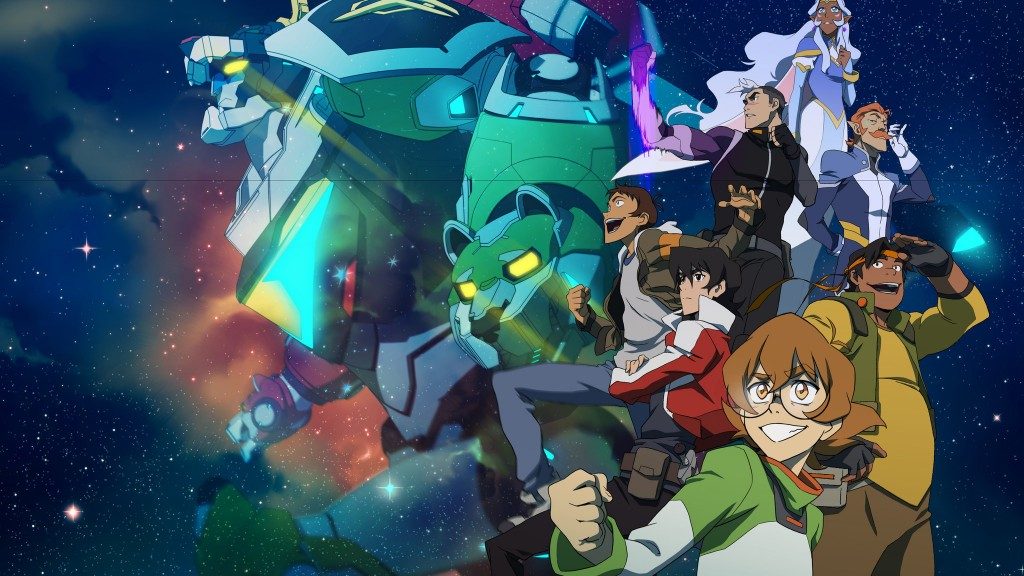
‘Voltron: Legendary Defender Season 2’ review
By Rebecca Peterson, Humour Editor
The largely popular animated Netflix series Voltron: Legendary Defender aired its second season on January 20, after a seven-month hiatus. As a fan of the first season (and to ignore the inauguration of the Orange Tyrant Who Shall Not Be Named), I wound up marathoning the whole thing over the course of a few days. I’d been eagerly awaiting the return of this series, and I was not disappointed by its second season.
The series picks up where the finale of Season 1 ends (so spoiler warning, if you haven’t watched the first season yet). The paladins of Voltron are thrown out of a destabilized wormhole after escaping the clutches of the Galra and their tyrant leaders, Emperor Zarkon (Neil Kaplan) and the witch Haggar (Cree Summer). Keith (Steven Yeun) and Shiro (Josh Keaton) find themselves crash-landed on a hostile planet together, Hunk (Tyler Labine) and Lance (Jeremy Shada) plunge into a watery world of overly-friendly merpeople, Pidge (Bex Taylor-Klaus) is left stranded alone on a pile of technological refuse, while Allura (Kimberly Brooks) and Coran (Rhys Darby) are stuck in a time loop that only Allura seems unaffected by.
Season 2 maintains the quality and heart of Season 1, balancing humour and visual gags with genuine gravitas as the paladins find themselves caught up in a growing resistance against the oppressive reign of the Galra. The story arc largely focuses on Keith as he comes to terms with his past and with unexpected revelations regarding his identity, Princess Allura’s struggle to balance her justified hatred of the Galra with evidence that “not all Galra” are genocidal maniacs, and each paladin’s attempt to develop a deeper connection with their respective Lions (components of the larger being, Voltron) and each other.
There is also an exploration of the concept of rebellion and the costs of war; the stakes feel a little higher now, as the paladins discover pockets of resistance against the Galra Empire and attempt to band everyone together for a final assault on Emperor Zarkon. Themes of sacrifice and the necessity of solidarity run throughout the season, even touching some of the lighter-hearted episodes (such as the joyfully ridiculous “Space Mall”). The arc answers some questions from the first season while inspiring many more, with the finale ending on an absolute cliff hanger that’s sure to leave fans desperate for the next season to air.
If I were to criticize the season in any way, it would be for separating the paladins far too often. Much of the show is based on the concept of “found family,” and Season 1 was certainly about building those bonds between each of the main characters. However, some of these connections seem a little more tenuous in Season 2, when they should have been strengthening after a significant period of time spent working together. There are four or five episodes where the team is split into groups of two or three, leaving characters out of the narrative entirely for agonizing amounts of screen time. It’s understandable during Episode 8, “The Blade of Marmora,” which does not completely exclude the other paladins but certainly focuses on Keith as he struggles to discover more about himself and his past. However, entire episodes are dedicated to the team splitting up on separate missions, undermining the “better together” message of the entire series. It’s not exactly a flaw, but I did miss the banter and comradery between all five paladins and their Altean companions that only a full roster of characters could provide.
All in all, Voltron: Legendary Defender remains an engaging and all-too-lovable series, and I’ll certainly be awaiting a third season with bated breath.

